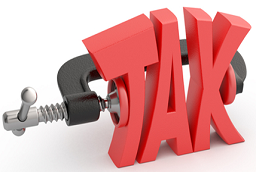Tax Planning
Various reliefs and benefits are available to all forms of business, But going through all of them and understanding which ones you are allowed for and which one is applicable to you, can be difficult. We help you in streamlining your tax affairs and plan your business in such a way that there are huge tax savings.
Effective tax planning is essential if you are to minimise your tax bills. Simple tax planning can significantly reduce your tax liabilities. Tax planning for the business owner should be based on a comprehensive approach to both business and personal taxation. Business or corporation tax planning and income tax planning should go hand-in-hand.
Take professional advice to find out how best to achieve your personal and business financial goals — and minimise taxes at the same time.
Tax Planning
Tax Planning

Tax Planning
Tax planning and business structure
Business tax planning should be a key consideration for any business start up. Your choice of legal structure can have a significant impact on likely tax bills.
If you set up in business as a sole trader or in a traditional partnership, you will be self-employed — and therefore liable for income tax on your profits.

So your tax planning should focus on income tax planning, along with other personal tax planning issues, such as minimising any eventual inheritance tax.
By contrast, a limited company will require corporation tax planning as well as income tax planning. The effect in terms of overall tax (and National Insurance) liabilities depends on a range of factors, including the level of business profits and how much income you need to take from the business.
Of course, tax planning is not the only issue. You may want to take advice on other issues, such as the significance of limited liability protection if you form a company.
Key tax planning opportunities
Ongoing tax planning will include ensuring you make full use of allowable expenses so you can reduce your tax liability. Effective tax planning can also enable you to bring forward expenses or defer income, so delaying tax payments.
Income tax planning for company owners needs to take into account the most tax-efficient way to take income. For example, dividends are not liable for National Insurance contributions (whereas income taken as salary is). Both company owners and the self-employed should also consider the tax planning opportunities offered by tax relief on pension contributions.
Tax planning can be particularly valuable if you are planning activities, for example, buying another business or selling your business.
As usual, we have the best in class consultants who would proivde you reliable independent tax planning advice to make sure you minimise your tax liabilities
